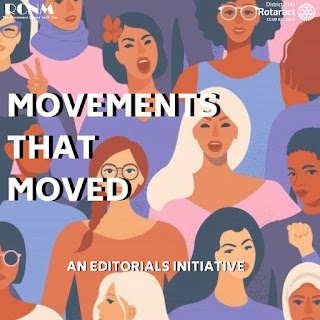The Waves Of Feminism
“Feminism is the radical notion that women are human beings” ~ Cherish Kramarae
None superior, none inferior it's all about equality
Feminism is about all genders having equal rights and opportunities. Feminism is about respecting diverse women’s perspectives, opinions, strengths and striving to empower all women to unleash their potentials. It’s about levelling the playing field between genders, ensuring that women have the same rights and opportunities as men. The meaning of feminism is: advocating social, political, legal, and economic rights for women equal to those of men. And if you believe in equality then you are a feminist.
Feminism is about learning and understanding the ways that inequality and discrimination affect women and recognizing that we are all equal. Feminism highlights the male dominated societies and the injustice that the women face within the society. Feminism empowers women to achieve their goals acting as a positive force in their lives.
It's being who you are - being the woman that you are, without fears of judgment or a joke. It's being successful, not in a materialistic way, but in the way you want to be. It's about doing what you want to do in life, fighting for what you want - not waiting for others to give you what you need.
Being a feminist
Charles Fourier, a utopian socialist and French philosopher, is credited with having coined the word 'feminism’ in 1837. The Oxford English Dictionary states 1852 as the year of the first appearance of 'feminist’ and 1895 for ‘feminism’. Depending on the historical moment, culture and country, feminists around the world have had different causes and goals.
Waves can bring alterations to the biggest of still oceans
According to Maggie Humm and Rebecca Walker, the history of feminism can be divided into three waves. The first feminist wave was in the nineteenth and early twentieth centuries, the second was in the 1960s and 1970s, and the third extends from the 1990s to the present. Feminist theory emerged from these feminist movements. It demonstrates a variety of disciplines such as feminist geography, feminist history and feminist literary criticism.
For What?
Feminist activists have campaigned for women's legal rights for right to bodily integrity and autonomy, for abortion rights, for reproductive rights for protection of women and girls from domestic violence, sexual harassment and rape; for workplace rights, including maternity leave and equal pay; against misogyny; and against other forms of gender-specific discrimination against women.
‘Each time a woman stands up for herself, without knowing it possibly, without claiming it, she stands up for all women.’
~ Maya Angelou




Comments
Post a Comment